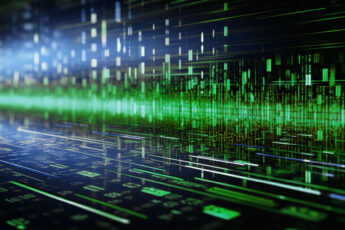
Bits and Neurons
Today, as I sat before my computer, my thoughts drifted from the rigid world of programming to the enigmatic landscape of human memory. It struck me as fascinating, this stark contrast between how computers and humans store data. In my work, I deal with binary code, where data is absolute, precise, unyielding in its accuracy. Yet, the human mind, my own included, is a nebula of memories, thoughts, and feelings, far from the exactitude of silicon-based memory.
I pondered this dichotomy deeply. Computers, my loyal companions in the realm of logic, store data in bits and bytes. These are unambiguous, unaffected by the whims of emotion or the erosion of time. A file saved today will remain unaltered a decade hence, unless intentionally modified. But human memory? It’s a different universe altogether. Our memories are like watercolours, blending and morphing over time, influenced by our emotions, biases, and subsequent experiences.
What intrigues me is the neuroscience behind this. Memories in the human brain are stored in a complex network of neurons, each firing in a symphony of electrical and chemical signals. Unlike the binary certainty of computers, human memories are prone to what psychologists term as ‘reconstructive memory’. Each time we recall a memory, we don’t retrieve an exact replica of the original event but rather reconstruct it, often incorporating new information or feelings. This malleability, while it makes human memory less reliable, also imbues it with a richness, a texture that a computer’s memory cannot replicate.
I reflected on how this difference impacts our perception of reality. In computing, what you program is what you get. It’s deterministic. Yet, in human cognition, our memories and perceptions are colored by our current emotional state, our biases, and our past experiences. A happy memory can turn bittersweet with the passage of time, coloured by subsequent sadness. Conversely, a traumatic event might lose its edge as the years pass, as our brain’s coping mechanisms kick in.
This blend of precision and distortion in human memory has implications for empathy, something I hold close to my heart. Understanding that each person’s recollection of an event is uniquely theirs, shaped by an intricate web of emotions and experiences, makes me more compassionate. It reminds me that what might seem irrational or exaggerated to a logical mind, might be a deeply felt reality for someone else.
As I closed my laptop, I couldn’t help but marvel at this beautiful, bewildering contrast. In the realm of computers, I find clarity, a welcome respite from the often overwhelming complexity of human emotions. Yet, in the imperfections and fluidity of human memory, I find the essence of what it means to be human – the ability to feel, to change, and to perceive the world in a multitude of hues.
So, as I continue my journey as a programmer, I hold onto this thought: while I strive for perfection in my code, I must embrace the imperfections in human memory, for they are what make life rich, unpredictable, and profoundly beautiful.



Leave a Comment